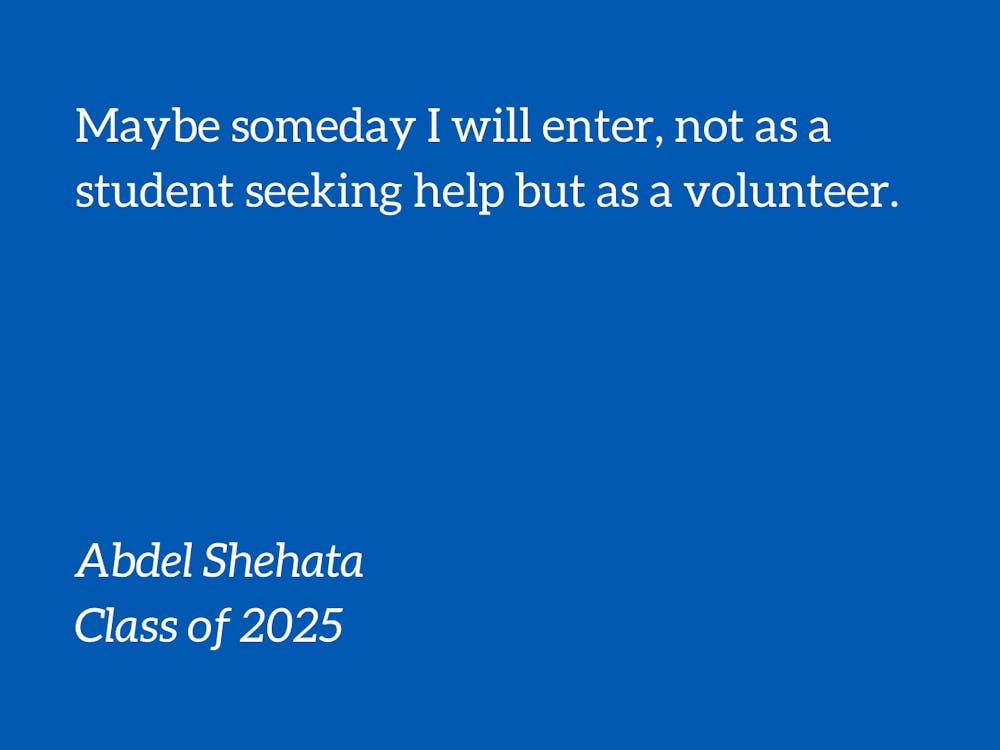I put my key in the ignition, turned it, and started driving without a destination. I didn’t know where I was going, but I did know that I needed a break from Duke. Every journey is defined by the choices made along the way, and quickly, I met my first choice of the night: should I turn right or left on South Buchanan Blvd? Since I hate making left turns, I turned right. I drove for maybe a half mile before I was met with a familiar building: The Emily K. Center. Even though I have never entered the building before for fear of being judged for my crappy admissions essay, I had friends who sang praises of the Emily K. Center for helping them get into their dream college. Maybe someday I will enter, not as a student seeking help but as a volunteer. However, that train of thought didn’t last long before I met a traffic light.
Right, left or straight, which way should I go? Left was brighter, so to the left it is. 30 seconds later, I was met with the sight of downtown Durham. There I saw a multitude of restaurants, which make up Durham's vibrant food scene. However, what caught my attention was the man begging in the middle of a traffic stop. I don’t carry cash, so I guiltily drove away. But I remembered a random statistic that I looked up for a project: 77 homeless people go unsheltered on a given day in Durham (The Durham Continuum of Care). I didn’t dwell too long on this thought; instead, I started vibing to a Kendrick Lamar song.
Eventually, I realized that I was lost. So I looked around, noticing construction for a random apartment complex. I was on North Roxboro Street. That's when it hit me, the Durham I moved to seven years ago is completely different from the Durham of today. As my dad likes to recount, “When I first came here twenty-something years ago, downtown was empty, houses and land were dirt cheap; that’s until the whites started moving in.” He probably didn't know what the word gentrification meant, but he was describing it. I didn't know what it meant, myself, until a close friend of mine had to move from his house because the rent was too high. At that point, I realized that behind all that fancy development is a community fighting to stay together. The city of Durham has been trying to deal with gentrification through the expansion of more affordable housing, but from the looks of it, like COVID, it's here to stay. Since there wasn't much I could do about it at the time, I just decided to forget about it and listen to the Lecrae song playing.
I drove around the city for maybe around 40 minutes, passing through McDougald Terrace, a public housing complex whose problems outnumber my words, to NC-55. Eventually I decided to call it quits and drive back to Duke. That’s not before my journey taught me a lesson: that Durham, like any city, has its laundry list of problems.
I was left frustrated. Frustrated at why can’t Duke do more for Durham, even though Duke employs members of the surrounding community. My frustration shifted to Duke students because I recalled something my friend said: “Duke is essentially Durham.” This angered me at the time as I realized most Duke students view Durham as a temporary stop rather than a second home. It also made me realize that a majority of my fellow classmates have never explored past 9th Street.
Knowing the power of narrative, I came up with a way to channel my frustrations: to write about my experiences with different community organizations. That way I hope that each Duke student will find a way to channel their passions in helping the Durham community. I realized that, though I'm one person, I can do my part to oppose Durham gentrification --dedicating my first year of Opinion writing to helping my hometown, chronicling my experiences with my column "A Day of Service."
Abdel Shehata is a Trinity first-year. His column runs on alternate Thursdays.
Get The Chronicle straight to your inbox
Signup for our weekly newsletter. Cancel at any time.

